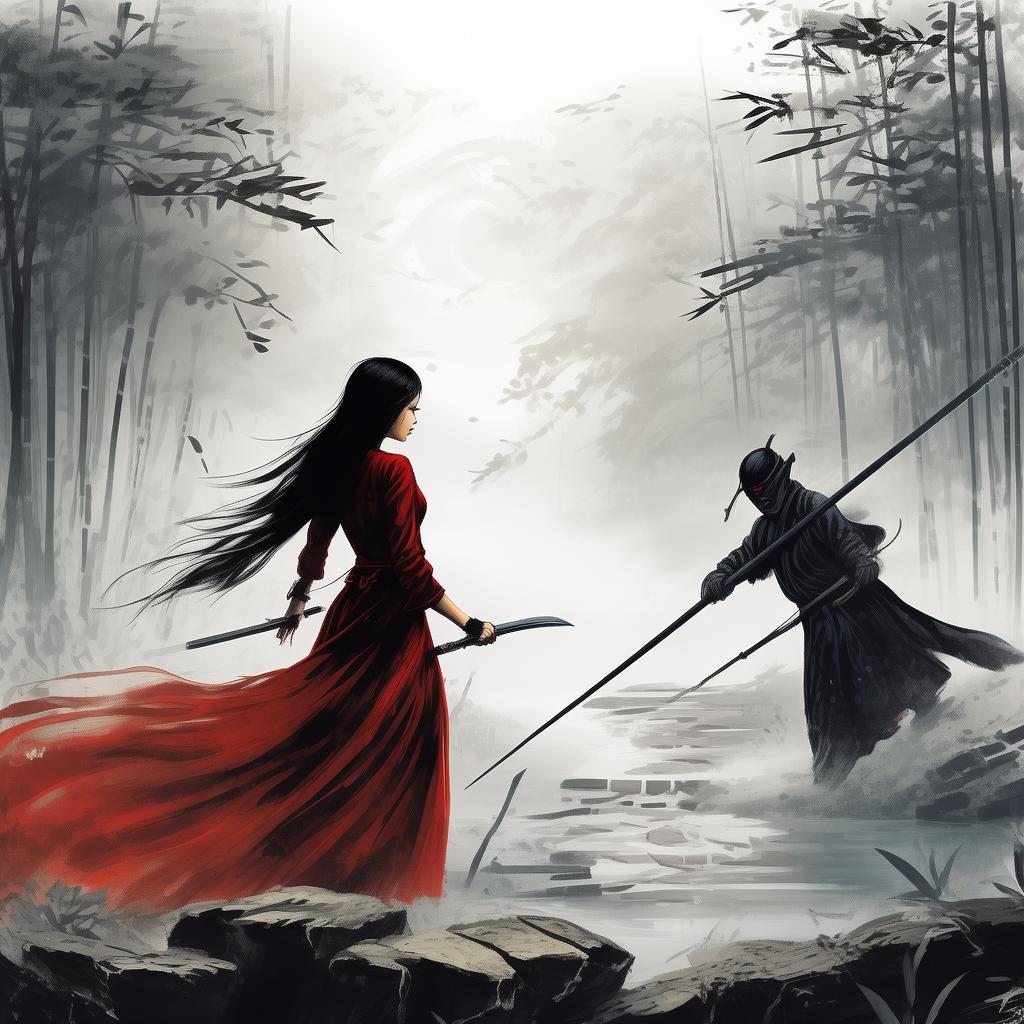Shadow of the Tiger's Brush: The Playwright's Last Performance
In the heart of ancient China, amidst the whispering bamboo groves of the Forbidden City, there lived a playwright named Li Qian. His stories danced on the stage, a mesmerizing blend of martial arts and drama, captivating audiences with every performance. Yet, there was a shadow over his life, a mystery that had haunted him since the disappearance of his mentor, the legendary martial artist and playwright, Master Hua.
Master Hua had vanished without a trace, leaving behind only a cryptic note that spoke of a play yet to be written. "The Theatrical Tiger: A Playwright's Life and Death Martial Arts" was the title, and it was the last play he had ever worked on. Li Qian had been his student for years, learning the nuances of both the stage and the martial arts. Now, as he stood in the dimly lit studio, the scent of ink and parchment filling the air, he knew that he had to uncover the truth.
The night of Master Hua's disappearance, Li Qian had been at his side. They had been working on the final scene of the play, a dramatic confrontation between a hero and his nemesis, a battle that would define the play's outcome. But as the dawn broke, Master Hua was gone, leaving behind a riddle that would challenge Li Qian's resolve and his mastery of martial arts.
Li Qian's quest began with a visit to the local inn, where Master Hua had often sought refuge. There, he encountered an old friend, Master Liang, a master of the Iron Fist technique. Master Liang's eyes, seasoned with years of combat, held a knowing glint. "You seek the truth, young Li," he said. "The Theatrical Tiger is more than a play; it is a code, a map to the hidden world of martial arts."
With Master Liang's guidance, Li Qian embarked on a journey that would take him through the treacherous lands of the Shaolin Temple, the shadowy alleys of the Wudang Mountains, and the bustling markets of the Silk Road. Each step brought him closer to the truth, but it was the people he met along the way who provided the greatest clues.
There was the blind swordsman who, with a single word, revealed a hidden passage beneath the temple; the courtesan who sang of betrayal and love, her voice a siren call to the heart; and the old monk who, with a flick of his finger, erased years from Li Qian's memory, leaving him to piece together the fragments of his past.
As Li Qian delved deeper into the mystery, he discovered that the play was a reflection of his own life, his own struggles with identity and purpose. The hero in the play was a man who, like Li Qian, sought to understand the world around him through the lens of martial arts and drama.

The climax of Li Qian's journey came when he encountered his mentor's nemesis, a cunning and ruthless fighter named the Shadow Tiger. In a battle that would determine the fate of the play and Li Qian's own destiny, he was forced to confront the darkest aspects of his past and the deepest fears that had driven him to seek the truth.
The final act of the play unfolded before him, a dramatic confrontation between the hero and the Shadow Tiger, a battle that would define the fate of Li Qian and the play itself. With every strike and parry, Li Qian felt the weight of Master Hua's legacy pressing down on him, a weight that he was determined to carry with pride.
In the end, Li Qian emerged victorious, not just over the Shadow Tiger, but over his own fears and doubts. He had not only written the play; he had become the hero within it. As the curtain fell, he stood on the stage, the applause of the audience filling the air, and he knew that Master Hua would have been proud.
The Theatrical Tiger: A Playwright's Life and Death Martial Arts was not just a play; it was a testament to the power of storytelling and the enduring legacy of a master's teachings. And in that moment, Li Qian understood that the true art of the play lay not in the words on the page, but in the life and death experiences of the people who brought it to life.
✨ Original Statement ✨
All articles published on this website (including but not limited to text, images, videos, and other content) are original or authorized for reposting and are protected by relevant laws. Without the explicit written permission of this website, no individual or organization may copy, modify, repost, or use the content for commercial purposes.
If you need to quote or cooperate, please contact this site for authorization. We reserve the right to pursue legal responsibility for any unauthorized use.
Hereby declared.









